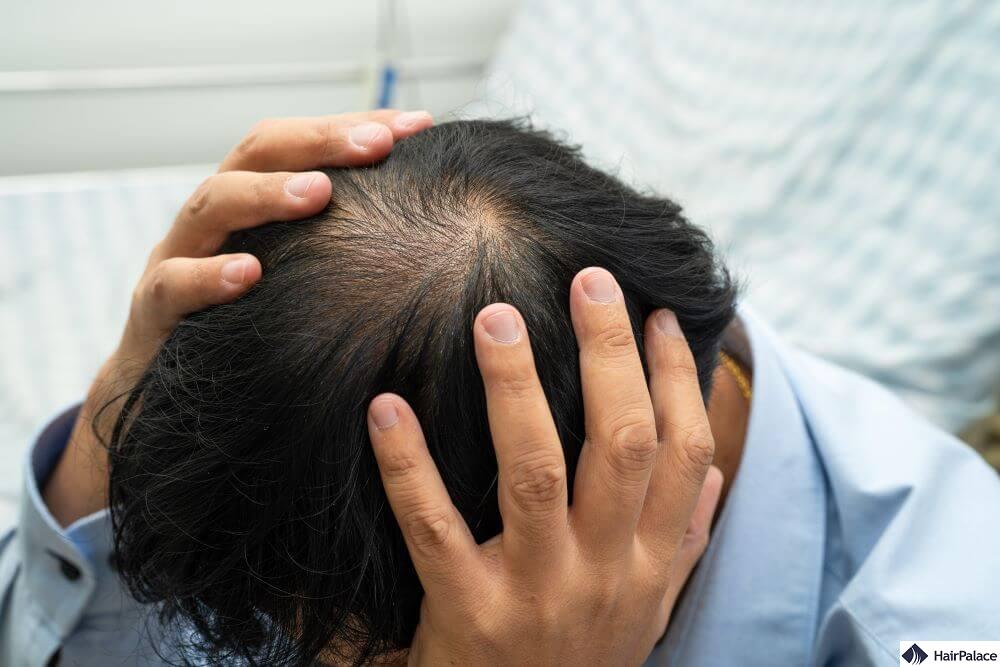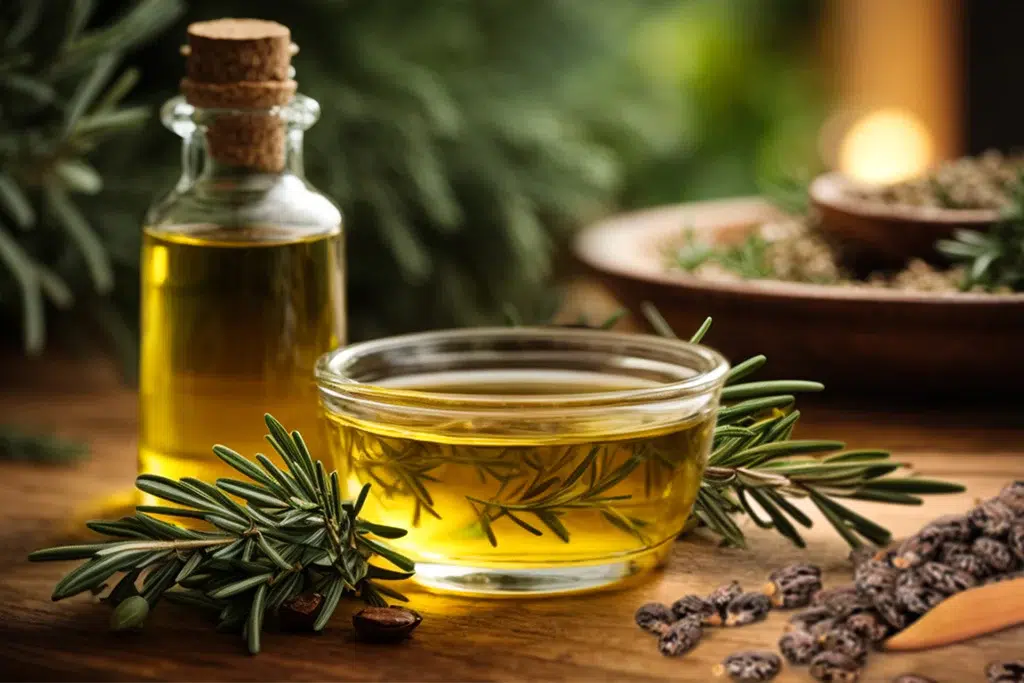Castor Oil for Hair: How to Use and Benefits

Castor oil for hair has become one of the most talked-about natural remedies in recent years, and for good reason.
This thick, nutrient-rich oil has been used for centuries in traditional medicine and beauty care. It’s valued for its ability to nourish, protect, and condition both the scalp and hair.
If you want to add shine, combat dryness, or adopt a more natural approach to hair care, castor oil is a simple yet powerful choice.
As more people turn to clean beauty and minimal-ingredient routines, castor oil has made a comeback. It bridges ancient wisdom with modern self-care.
In this article, we will break down everything you need to know about this emerging hair treatment.
What is castor oil good for
Castor oil is a thick, pale yellow vegetable oil extracted from the seeds of the Ricinus communis plant, commonly known as the castor bean.
It has been used for thousands of years in medicine, cosmetics, and even industry, thanks to its unique composition.
Traditionally, castor oil has been valued as a natural remedy for a wide range of purposes.
It’s used to moisturise dry skin, soothe inflammation, and support digestive health when taken in specific medical forms.
In modern times, it’s become a versatile ingredient in skincare, haircare, and wellness products, often prized for its ability to soothe the skin and promote hair growth.
Beyond beauty, castor seeds also play a role in industrial applications due to its high viscosity and stability.
Yet, its growing popularity in personal care stems from its natural origin and the perception of being a cleaner, more holistic alternative to synthetic hair oils and silicones.
Is castor oil good for your hair

While it won’t magically transform hair overnight, its unique composition makes it a useful addition to many routines.
The oil is rich in essential fatty acids, particularly ricinoleic acid, which helps coat the hair shaft and reduce moisture loss.
This creates a protective film that can make hair feel smoother and more manageable over time.
Because of its dense texture, castor oil is often used as an occasional treatment rather than an everyday product.
Many people apply it to the scalp, ends, or as part of overnight masks, finding it especially helpful for dry, brittle, or frizzy hair types.
However, it’s important to apply only small amounts or mix it with lighter oils such as jojoba or argan oil, to avoid buildup and heaviness.
What does castor oil do
Castor oil works as both a humectant and an emollient. It helps the skin and hair attract and retain moisture while forming a protective layer that prevents water loss.
Its main component, ricinoleic acid, offers nourishing and anti-inflammatory benefits. This is why it’s widely used in cosmetic and medicinal products.
When applied to the scalp, castor oil helps maintain hydration, creating a healthy environment that can support hair growth.
When applied to damp hair, it smooths the outer cuticle layer, giving strands a glossier and more conditioned appearance.
It’s also a popular ingredient in lip balms, body oils, and cleansers, as well as a base for natural remedies targeting dry skin or minor irritations.
Its viscous nature also makes it an effective carrier oil, meaning it’s often used to dilute essential oils or to boost the absorption of active ingredients in DIY beauty blends.
Castor oil benefits for hair

Castor oil offers a variety of benefits that make it a favourite in natural hair care routines.
Its thick, nutrient-rich composition helps improve the look and feel of dry, coarse, or damaged hair, leaving it smoother and more resilient over time.
One of its key advantages lies in its moisture-retaining ability; castor oil seals the cuticle and slows down water evaporation, helping hair stay hydrated for longer.
This can reduce the appearance of split ends and frizz, making it particularly useful for curly or textured hair types that are prone to dryness.
Its ricinoleic acid content also gives it mild antimicrobial and soothing properties, which may help maintain a balanced scalp environment.
While it doesn’t directly stimulate new hair growth, it promotes healthier hair and creates a better condition for stronger strands to grow.
Many users also appreciate its shine-boosting effect: by coating the hair shaft, castor oil gives hair a natural gloss and smoother texture that reflects light more easily.
Over time, regular use can make hair appear fuller, healthier, and more manageable.
How to use castor oil on your hair

Because castor oil is dense and sticky, the application process makes all the difference between soft, nourished hair and a heavy, greasy mess.
The key is to apply it sparingly and strategically.
Start by warming a small amount of oil between your palms or in a bowl; slightly heating it makes it easier to spread.
Then, massage it gently into your scalp using your fingertips to boost circulation and help the oil absorb more evenly.
You can also apply castor oil in a light layer along the mid-lengths and ends of your hair to reduce dryness and frizz.
Once applied, wrap your hair in a warm towel or shower cap and leave the oil on for at least 30 minutes.
For deeper conditioning, some prefer to leave it overnight.
When you’re ready to rinse, use a sulfate-free shampoo and wash twice if necessary to fully remove residue.
Most people use castor oil once a week or every two weeks rather than daily, as overuse can lead to buildup.
Those with fine or oily hair may benefit from mixing it with lighter oils like jojoba, argan, or coconut oil for easier application and a smoother finish.
Rosemary and castor oil for hair

When combined, rosemary and castor oil for hair loss make a powerful natural blend for supporting hair health.
Each oil offers unique benefits that work well together.
Rosemary oil is known for its stimulating effects, while castor oil is rich, nourishing, and deeply hydrating.
Research suggests that rosemary oil may help improve hair density and growth.
It does this by boosting blood circulation to the scalp and reducing inflammation around hair follicles.
It’s also naturally antimicrobial, which can help keep the scalp clean and balanced, an ideal environment for shinier hair.
Castor oil for hair growth, on the other hand, helps lock in moisture and protect the strands from breakage.
When used together, rosemary enhances the absorption and effectiveness of castor oil while counteracting its heaviness.
This results in a blend that feels more balanced and easier to apply.
To use them together, mix a few drops of rosemary essential oil into a tablespoon of castor oil.
Warm the mixture slightly, massage it into your scalp, and leave it on for 30–60 minutes before washing.
Regular use can help your hair feel stronger, softer, and more refreshed.
FAQ
Castor oil helps moisturise, protect, and smooth the hair by sealing in hydration and reducing breakage. Jamaican black castor oil also supports a healthier scalp, which can promote stronger, shinier strands over time.
- Phong C, Lee V, Yale K, Sung C, Mesinkovska N. Coconut, Castor, and Argan Oil for Hair in Skin of Color Patients: A Systematic Review. J Drugs Dermatol. 2022 Jul 1;21(7):751-757. doi: 10.36849/JDD.6972. PMID: 35816075.https://pubmed.ncbi.nlm.nih.gov/35816075/
- Kumari KMU, Yadav NP, Luqman S. Promising Essential Oils/Plant Extracts in the Prevention and Treatment of Dandruff Pathogenesis. Curr Top Med Chem. 2022;22(13):1104-1133. doi: 10.2174/1568026622666220531120226. PMID: 35642120.https://pubmed.ncbi.nlm.nih.gov/35642120/


